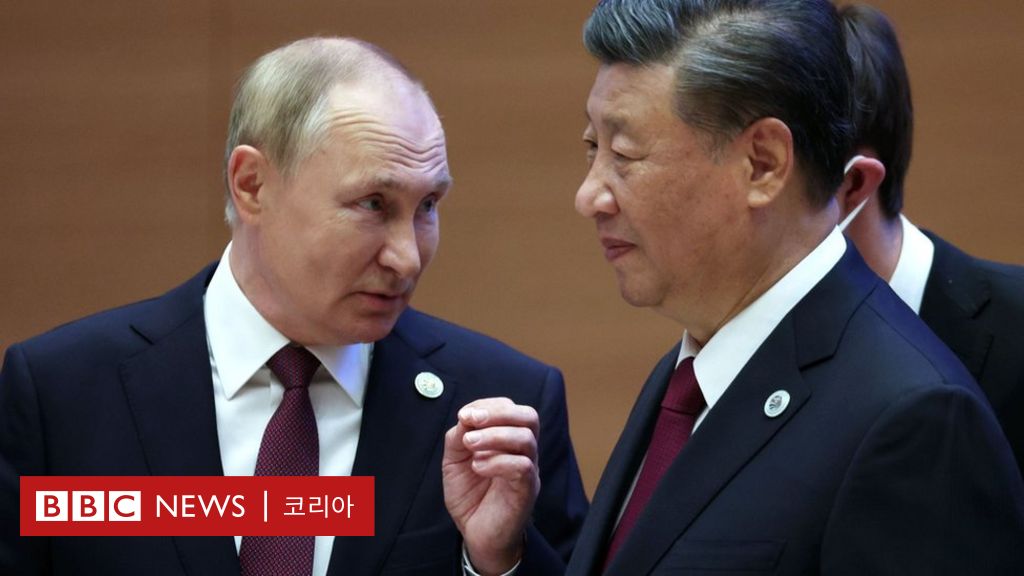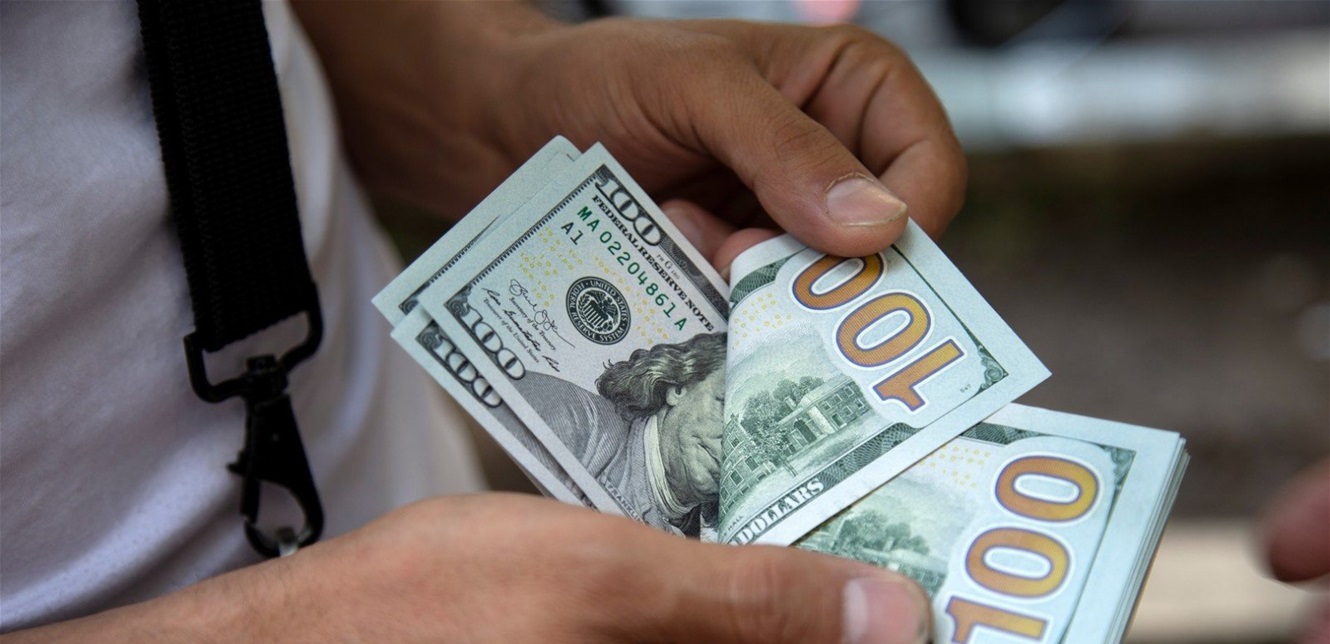photo source, SERGEI BOBYLEV/SPUTNIK/KREMLIN POOL/EPA-EFE
Russian President Vladimir Putin and Chinese President Xi Jinping will meet in Moscow this week
Chinese President Xi Jinping will visit Russia for the first time since the invasion of Ukraine began last year and hold face-to-face talks with President Vladimir Putin.
BBC Russia editor Steve Rosenberg and China correspondent Stephen McDonnell give an overview of what the two sides are expecting from the meeting and what we know about the relationship between the two countries.
Putin wants a friend’s help
Analysis: Russian editor Steve Rosenberg
Imagine you are Vladimir Putin. The war that has been waged is not moving as planned and we are busy with various sanctions measures. The International Criminal Court has issued a warrant for your arrest on charges of war crimes.
This is the time when you need a friend. This is where Xi Jinping comes into play.
President Xi Jinping once called Putin his “best friend.” The two have a lot in common. A dictatorial leader and welcomes the concept of a “multipolar world” without US domination.
The two are expected to sign an agreement to “strengthen comprehensive partnership” between the two countries in Moscow.
At a time when Russia is under intense international pressure, the Chinese president’s state visit is a clear sign that he supports Russia and its president.
Xi Jinping and Putin meet in Brazil in 2019
Journalist Dmitry Muratov, former Nobel Peace Prize laureate, said: “Putin is building the (regional) bloc he wants. He doesn’t trust the West anymore and he won’t return that trust.”
“Therefore, Putin is trying to find allies and include Russia in a common fortress with China and India and some Latin American and African countries. Putin is building an anti-Western world.”
In this “anti-Western world,” Russia is heavily dependent on China. As the war in Ukraine escalated, that dependence became stronger than ever.
Alexander Gabuev, senior fellow at the Carnegie Endowment for International Peace (CEIP) in Washington, DC, concluded: “The war has become central to Russia’s domestic politics, foreign policy and economic policy. There is an obsession to destroy Ukraine.” .
“That requires weapons, money and an economic lifeline. It is also clear that China is at least providing Russia with weapons components and civilian technology that can be used for military purposes and funding.”
Russia has stepped up trade with China, primarily in the energy sector, to respond to Western sanctions and boost its economy. Oil, gas and energy pipelines are expected to be on the agenda at the Putin-Xi Jinping summit.
Let’s imagine here again that you are Putin. A year ago you and Xi Jinping declared that there were “no limits” to each other’s partnership. So, can China be expected to lend a helping hand in the war in Ukraine by providing military aid to Russia and supporting its victory? The US claims China is thinking just that. China denies this.
There is an old saying in Russia, “Wanting for something in itself is no harm.” Of course, wishes do not become reality by themselves. If there’s one thing confirmed last year, it’s that even “unlimited partnerships” have their limits. So far, China appears to have been reluctant to provide direct military aid to Russia for fear of a second round of Western sanctions against its companies. From China’s point of view, I’m sorry for Russia… but China has no choice but to come first.
A recent talk show on Russian state television made this point very straightforward.
Military expert Mikhail Kodarenok said that ahead of President Xi Jinping’s visit to Moscow, “some of the experts here were over-excited, even elated.”
“But China has only one ally: China itself. There is only one interest in China: pro-China. There is no altruism in China’s foreign policy. ”
There are only 3 signals Xi Jinping can send to Putin
Analysis: China Correspondent Stephen McDonnell
The purpose of Xi Jinping’s official visit to Russia is to promote bilateral relations between the two neighbors. Clearly, the two governments say their relationship is getting closer than ever.
Agreements will be signed, dinners will be held, and photo shoots will be held.
All governments around the world interact in this way, so why did all the attention come to this summit?
First of all, it is noteworthy that as of 2023, one of the world’s two largest superpowers is visiting allies, and the target of that visit has somehow launched a bloody aggression on another country in Europe.
Many analysts have pondered what China would do if Russia faced an undeniably humiliating defeat on the battlefield.
Will the self-proclaimed neutral China step back and let it be defeated, or will it arm the Russian military to gain the upper hand?
Whatever conversations the two leaders may have after Xi Jinping’s arrival in Moscow, all attention will be focused on the Ukraine crisis.
Xi Jinping and Putin at the 2014 Sochi Olympics
There are only three signals Xi Jinping can send to Putin.
- That it’s time to compromise to save face and consider withdrawing
- That you can continue like this or be more active
- that neither would suggest
China recently succeeded in mediating diplomatic normalization between Iran and Saudi Arabia. The atmosphere to actively engage in issues across borders has heightened more than ever. Therefore, the possibility of sending a third signal seems very low.
If China chooses the first option and raises its name as a global peacemaker following the Iran-Saudi mediation, it will be a great achievement for Xi Jinping.
However, the question at this time is how much China will benefit.
The darkest option is option 2. There is an interpretation that the Russia-Ukraine war will affect China’s geopolitical strategy. Russia is confronting the West and encroaching on the resources of the North Atlantic Treaty Organization (NATO). If the war were to last longer, the West’s willingness to engage could change when the People’s Liberation Army uses force to occupy Taiwan.
China is calculating that the longer the war in Ukraine lasts, the less likely it will be to get involved in another war.
The Chinese government’s assertion of neutrality also contradicts state-run news reports. Evening newscasts tend to focus on Russia and spend much of their time blaming the “West” for this “conflict.” Never use the words “war” or “invasion” of Ukraine.
China says externally that the sovereignty of all countries (such as Ukraine) must be respected, but the “legitimate security issues” of other countries (such as Russia) must also be respected.
And Xi Jinping is visiting Moscow, not Kiyue.
So, when Xi Jinping leaves Moscow in a few days, Putin will either be worried about China’s faltering support or be encouraged by having one of the world’s two most powerful countries on his back.
Currently, the view of predicting the latter seems to be dominant.


